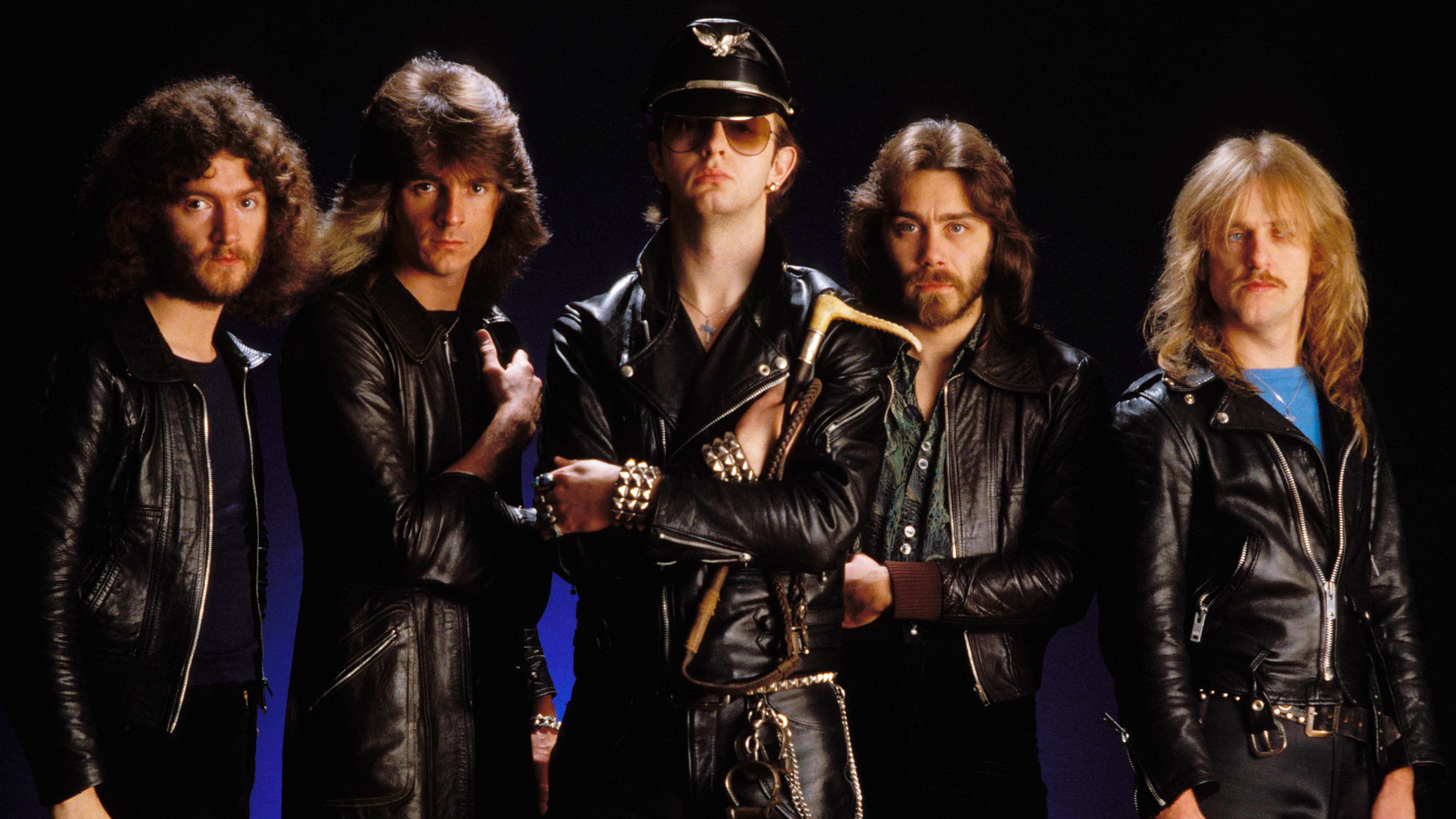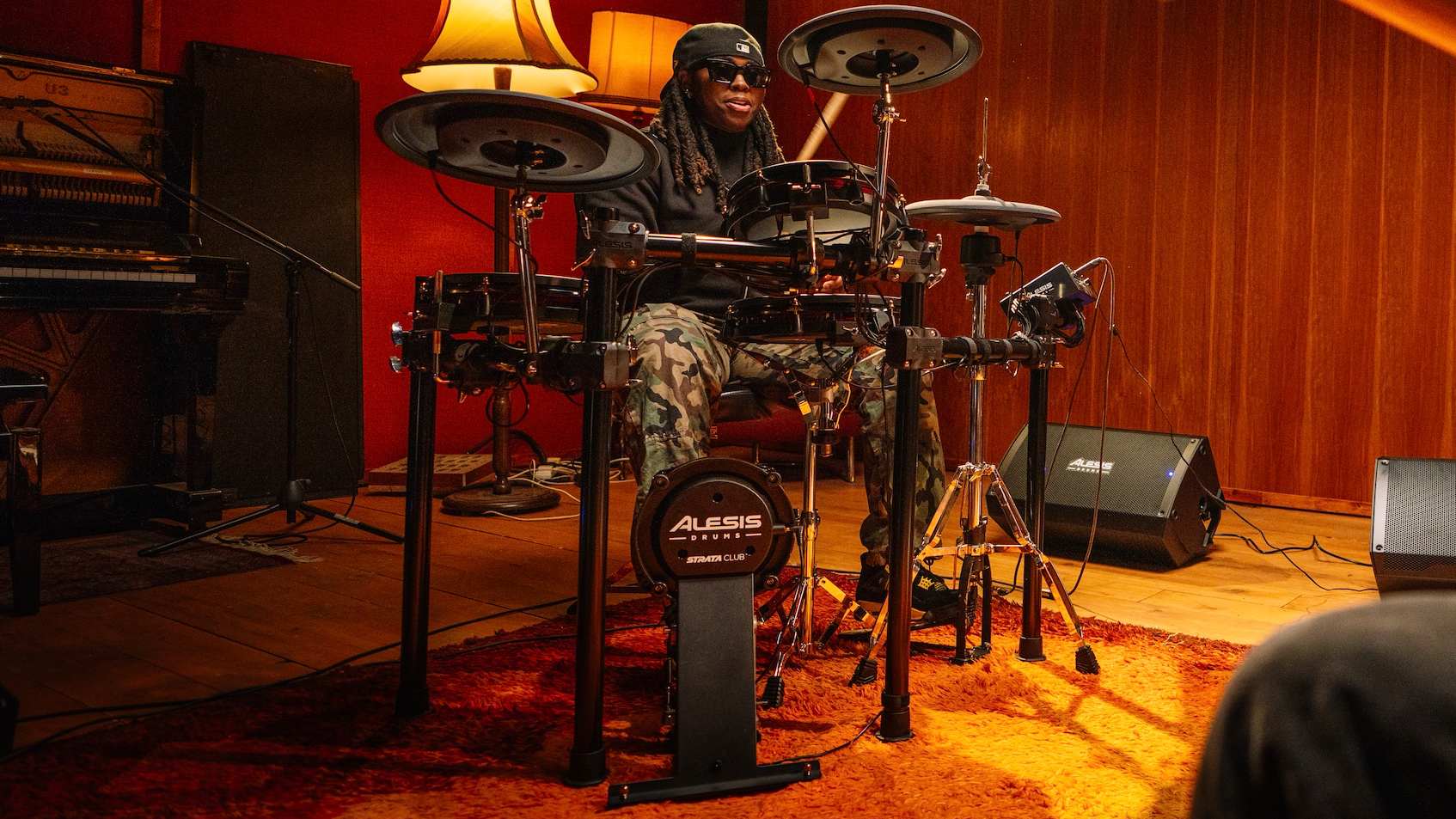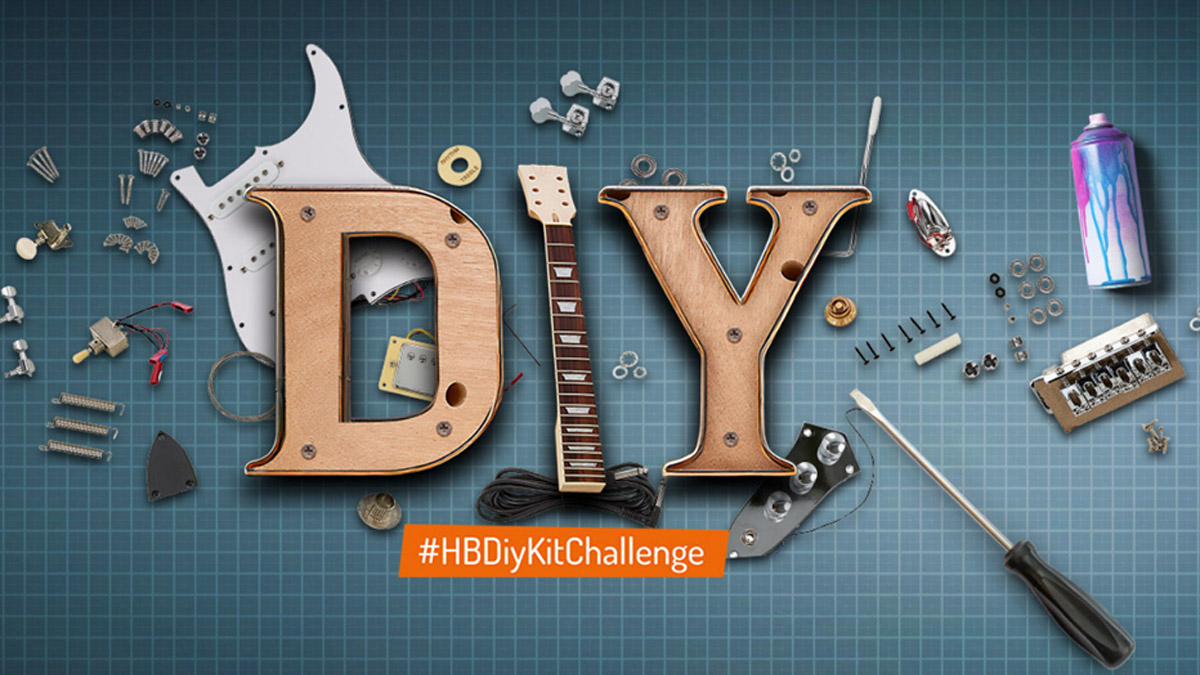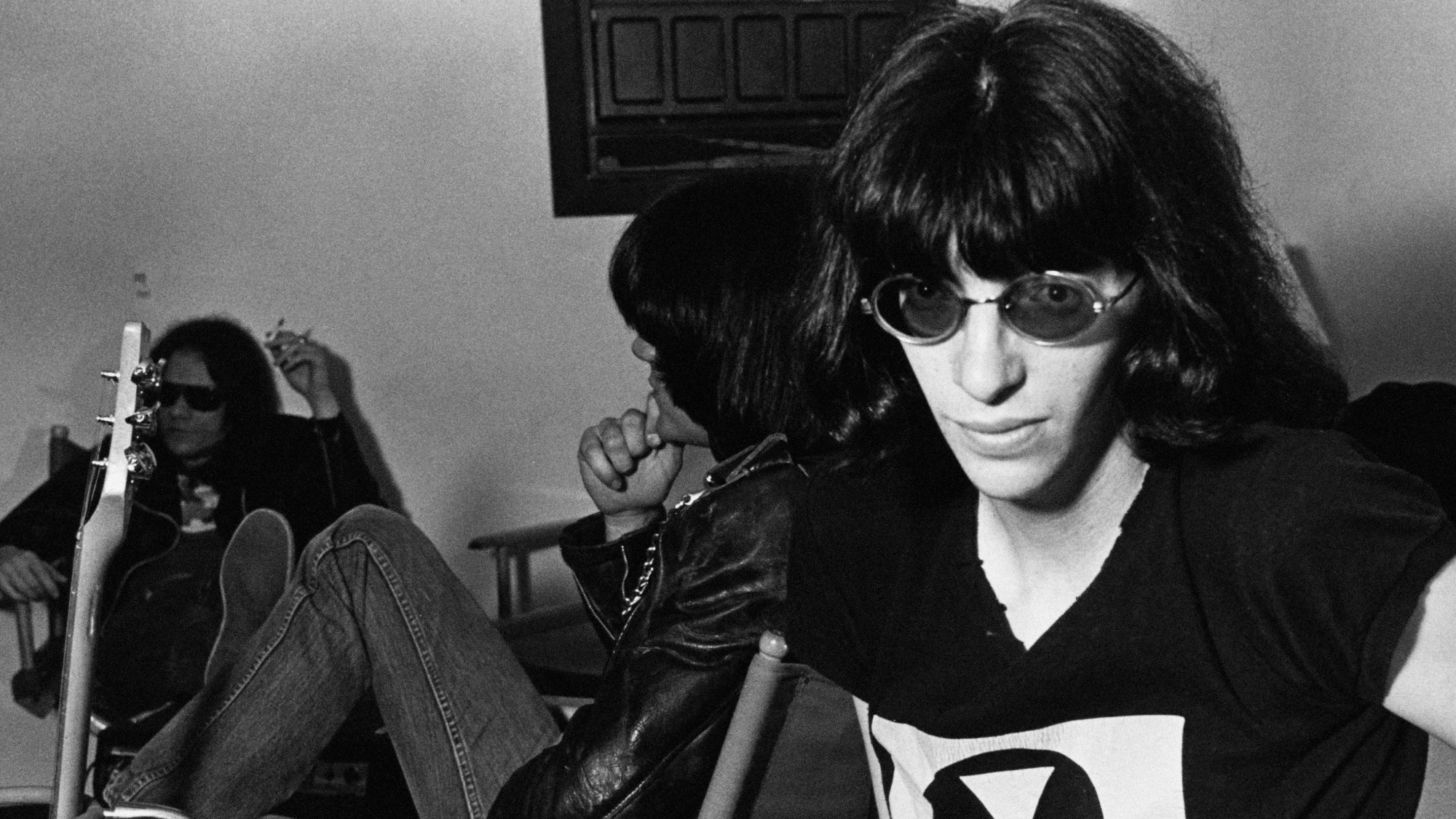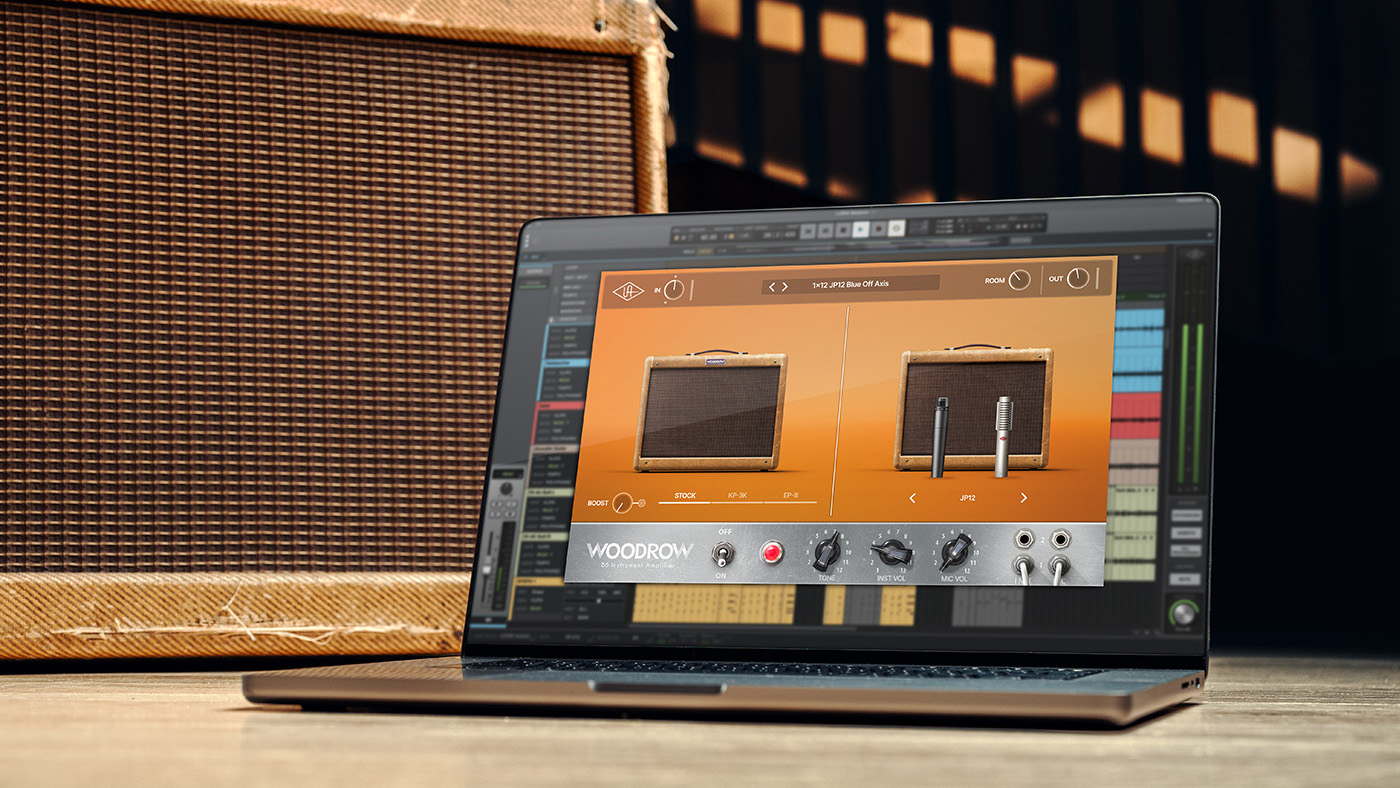Classic interview: Rory Gallagher - "Jimmy Page makes a point of it and congratulations to him and Keith Richards, some of their best notes are the ones that are fluffed"
In 1987 Guitarist magazine met with the bluesman to discuss his forthcoming Defender album, but learned much more
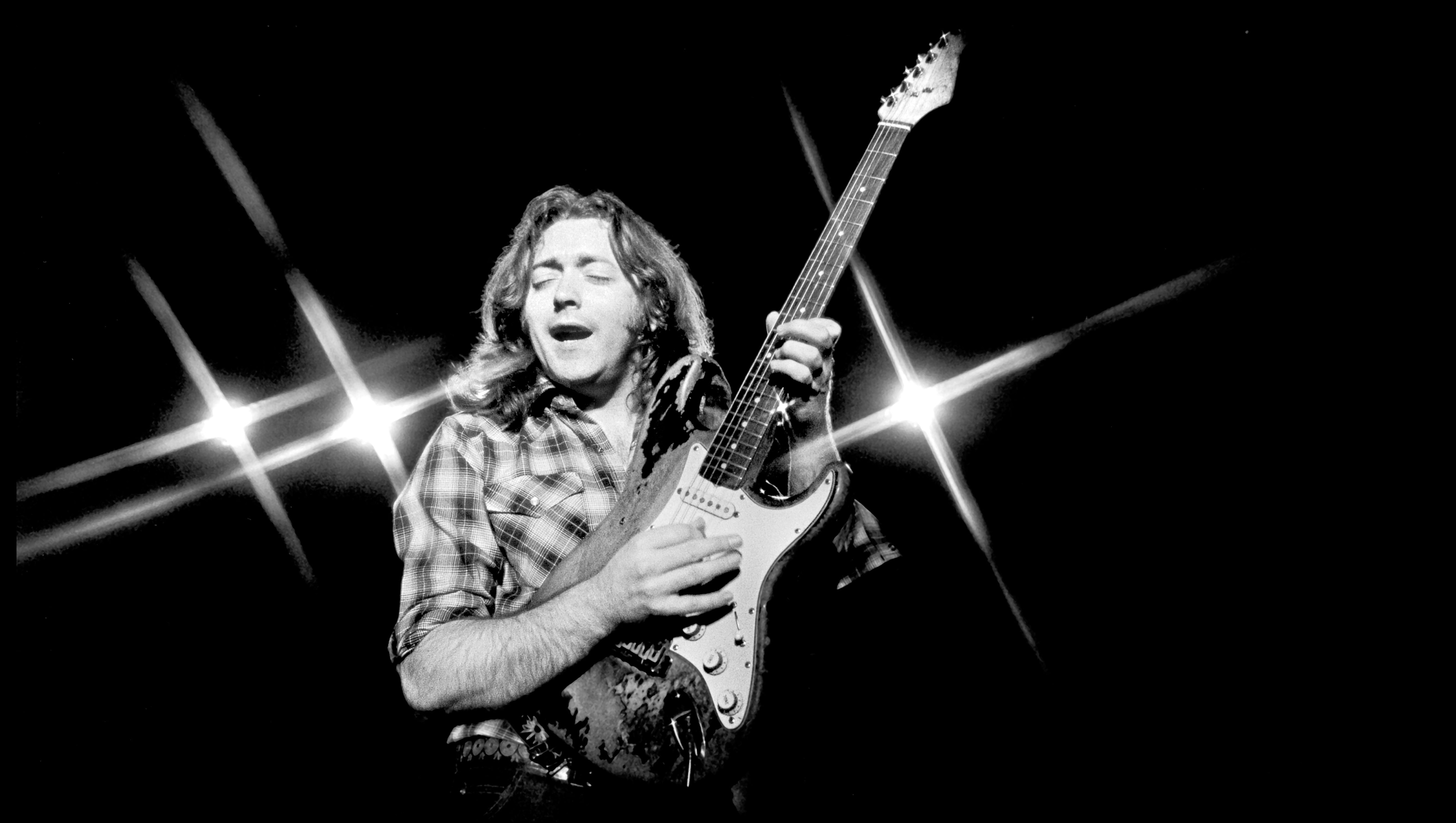
In 1987, Guitarist magazine's Neville Marten went to visit Rory Gallagher as he made what would become the Defender album to discuss the studio approach of a player renowned for his live fire. And he gave that, and much more insight into his uniquely creative mind…
Is it a departure from what you’ve done before or is it basically still Rory?
“Some of my albums veer more towards rock, but on this one there’s a strong return to blues influences. There are a few rocky tracks and there’s a few unusual bits in some of the songs – there are always things that influence you, like an Irish influence or a Spanish influence – but the blues tracks are fairly much in the blues tradition.
"The whole feel of the album is good and gritty and it’s honest – and we’ve got the sound right. I wasn’t very happy with the sound on [1982’s] Jinx compared to this one.
“I was going to do an instrumental, because I’ve never done one on a record before. Not for ego sake, but I always think it’s nice for a guitar player to do an instrumental that becomes one of his numbers. I have one and I’ve been rehearsing it – it’s the 11th hour now and we’re very tempted to record it. We’re going to call it The Loop [the raised railway that runs round the centre of Chicago – Ed].”
I think a lot of people might like that…
“After all of these years I think it might be worthwhile. If not, we’ll have it on the next album because whatever way the wind blows we’re going to put about two or three out in reasonable succession, so we don’t get stuck in that rut. So, with the studio in our veins we can go in – between doing festival work in the summer – laying odd tracks down so that it doesn’t become a ‘big’ project.
Get the MusicRadar Newsletter
Want all the hottest music and gear news, reviews, deals, features and more, direct to your inbox? Sign up here.
"I think sometimes that’s the best way to do it – do it in bits instead of starting on 1 January and being at it for the next X weeks, which becomes months.”
Do you find that limits your creativity?
“I think it dulls your sense of decision. In the old days, because of all the gigs we were doing, you had to be in and out of the studio in order to be in Norwich by eight that night – or on the continent or somewhere. It’s a good form of discipline; it didn’t give you much time to hone the thing down.
"I think what we’ll try to do is do a day in the studio and then do a gig the following day - some kind of process like that would be good.”
It keeps it vital…
“It does yeah. I didn’t grow up working on 24-track – the first two Taste albums were eight-track and we always had tracks left over – we couldn’t believe it, either! Then we did a couple of albums on 16-track, which was great because we could compromise here and there – like if you had a tambourine or handclaps, the roadies could do it, or your friends could do it at the same time as somebody was doing acoustic in a booth.
"It keeps a kind-of a workshop feel to it; you can bring every musician in at different hours but you lose that interaction of people playing together, which is pretty evident by some of today’s music.
"I hope to go back to six- or eight-track next time, I always threaten to do that. There is a technical argument that the space of tape, per track, on 16-track is broader than 24-track – a few people have noticed that and you get a bigger sound. I think the Eagles bought a 16-track for that very reason, because it’s broader and fatter.”
I was talking to some people the other day who were trying and find what it is that made old records sound better than the modern ones.
“Well they let the bass rumble round, spillage was allowed and separation wasn’t the first commandment. I think that’s a major part of it, plus the desks and things in those days were valve desks and they were slightly distorted in the nicest possible way.
"The old compressors and echo chambers were very mechanical and they just did the one job, but did it very well.
“It’s like if you compare Dylan’s Highway 61 to his last two albums – he himself has said that he’s yearning to get that sound again but obviously somebody’s misdirecting him. It’s just a ‘combustion’ of sound. A technician would probably say, ‘Okay Rory, can’t you hear that cymbal’s peaking at such and such, can’t you hear that bass is not forward enough.
"I’m not against progress but you have to admit to your soul that some things are lacking in some of these newer recordings.”
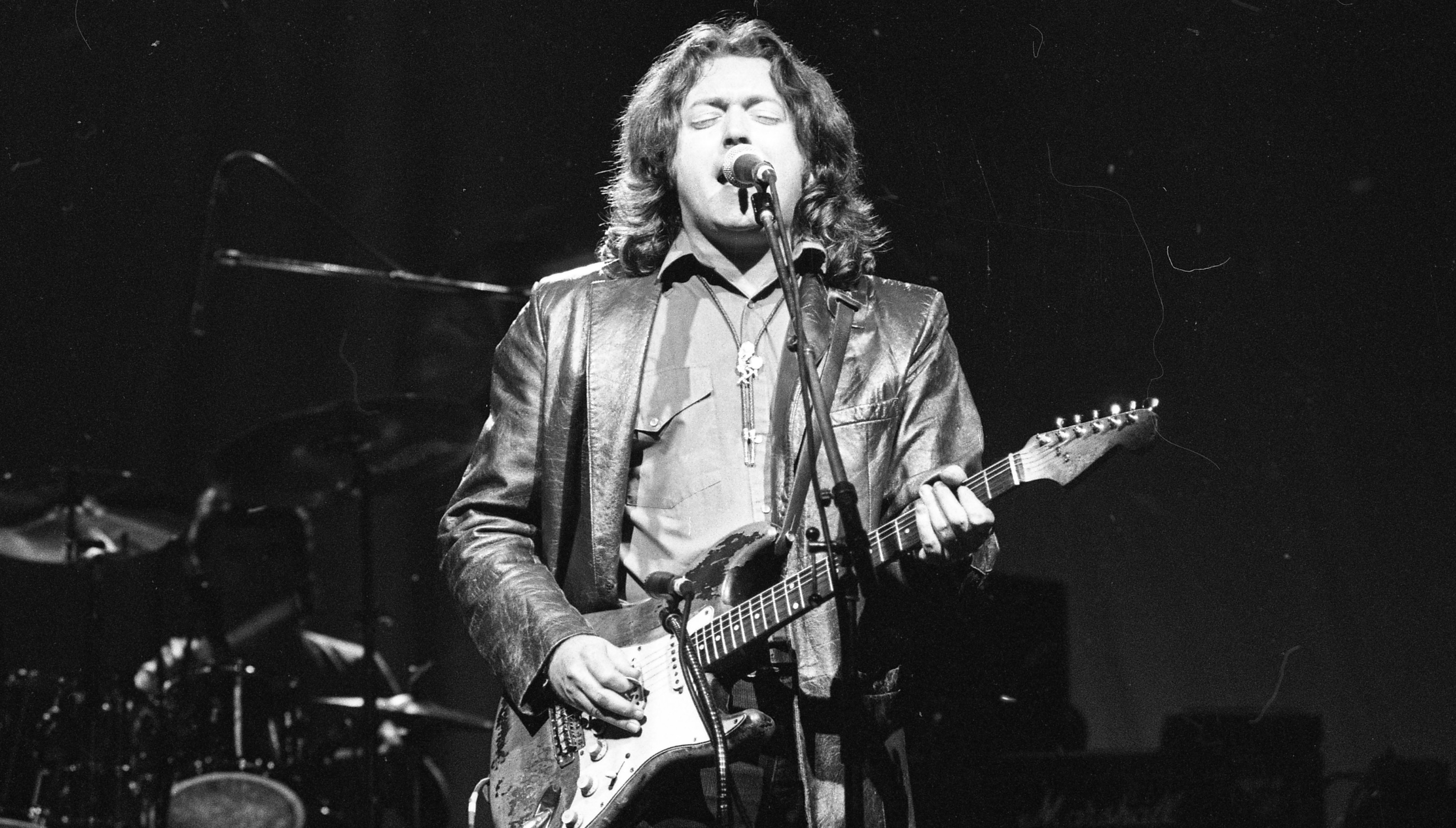
You’re thought of as a live player; do you enjoy playing in the studio or is it like a chore that you have to get over?
“I enjoy some nights in the studio. I’m not the greatest person in an enclosed space; I’m a live player by birth – like a gypsy folk player, I just sit in the corner and play. I like looking at people, because you get a good vibe back or a bad one, whatever, whereas in the studio certain things can irritate – you get to know every spot on the wall and every mark on the carpet and if you’re not getting on with the engineer it doesn’t help, either.
"That said, it’s great to hear the track coming together; to go home with a cassette of a new song and check it out. I like that part but it can be a grind I must admit.
I’m not the greatest person in an enclosed space; I’m a live player by birth – like a gypsy folk player, I just sit in the corner and play
“When it comes to a solo in a live situation you go for it and generally it’s 95 per cent great, but there’s a bum note or you get an open string when you didn’t want it and that’s fine live – but in the studio… I don’t play many bum notes; I do play open strings now and then but, even in the studio, if the solo had feel and fire I wouldn’t mind a fluff in it.
"I mean Jimmy Page makes a point of it and congratulations to him and Keith Richards, some of their best notes are the ones that are fluffed and they know what I mean by that. For instance there are certain solos on certain records I’ve played that I wouldn’t say I couldn’t do live, but I wouldn’t have the patience and the calm.
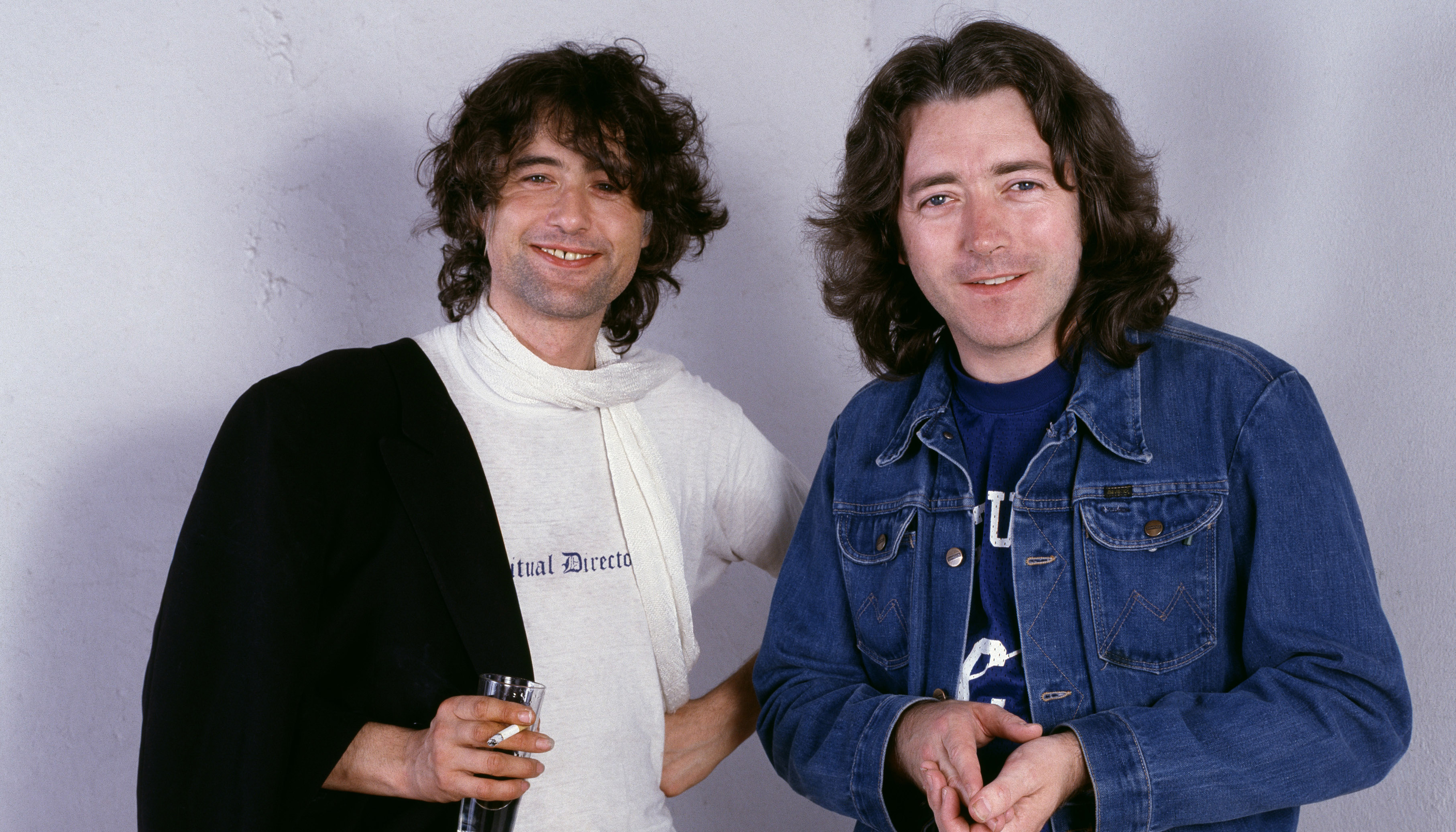
"Like I did an intro on Edged In Blue years ago, which, was like a poignant type of intro. If it’s a track that needs a very thought out type of line and has be very much in context, I think the studio wins on that occasion. But if it’s for a fiery, nuts and bolts thing and it’s a little out of control, I think the live thing is better.”
What about live work?
“There’s a bunch of festivals on the continent coming up. We’ve done these for the last couple of years but the prime thing, other than the album, is to do a British tour and to do some Irish dates as well, because we’ve neglected this part of the world.
"It will be good fun because we used to do like a couple of tours here every year; it was almost like you could have a winter and spring thing, but we’ll enjoy are doing some dates here.”
I’m still mad about slide; everyone can play guitar but not everyone can play slide and there are so many ways of progressing on it
You’re one of the best slide players around; are you playing much of that these days?
“Oh I play a lot of slide on the new album – I’d say on half the tracks, the solo is slide – but then again a lot of the time I use a slide tuning for the rhythm part anyway. I play a lot of slide in regular tuning as well as open tunings.
"I’m still mad about slide; everyone can play guitar but not everyone can play slide and there are so many ways of progressing on it. Every now and then you buy a record by some country bluesman from the thirties who just wipes the floor with you and you have to start again – but I’m getting there.”
Are you still using the Tele for that?
“I use the Tele sometimes. Obviously for regular tuning it would be the Strat, and string string slide. But you get the point – you almost go past the open tuning thing. I mean I can play in any key in standard tuning, but it’s a different sound because you miss the open tuning.”
When I first heard you, I had been very used to the Clapton style of playing and knew his music inside out. He never stepped outside that style but you were suddenly playing unexpected things. Was it inside you, was it tons of practise, did you just happen to find things or did you sit down and think, ‘I’m going to play differently to anybody else?’
“If I can be immodest, it’s a mixture of all of those things, really. I mean as a compact blues player you have to doff your hat to Eric Clapton, there’s no doubt about it. But he worked within, shall we say, the limits set down by Hubert Sumlin, Willie Johnson, with Howlin’ Wolf, some parts of what the Kings had played – but he did it so well. He had the attack, the tone and the fire, which was something of his own.
I really didn’t want my epitaph to be, ‘Oh Rory was great; he played exactly like BB King’, or whatever. I want to – I mean it’s a very big-headed thing to say – but I just wanted to pull a stroke here and there – to just change the idea of the thing by a weird note.
"I can work within that region but maybe it was because I was so young. I was playing when I was nine and then coming from Ireland you’re aware of different scales and different tonalities and things, and then I played mandolin and banjo and so on and was interested in certain jazz phrases. So I never liked working strictly within the dead set sort of framework.
“I really didn’t want my epitaph to be, ‘Oh Rory was great; he played exactly like BB King’, or whatever. I want to – I mean it’s a very big-headed thing to say – but I just wanted to pull a stroke here and there – to just change the idea of the thing by a weird note. Also I use my little finger a lot, because of playing mandolin, plus obviously
I was digesting other people that I heard. So if I had anything different it’s probably something that was in all of that, I don’t know.”
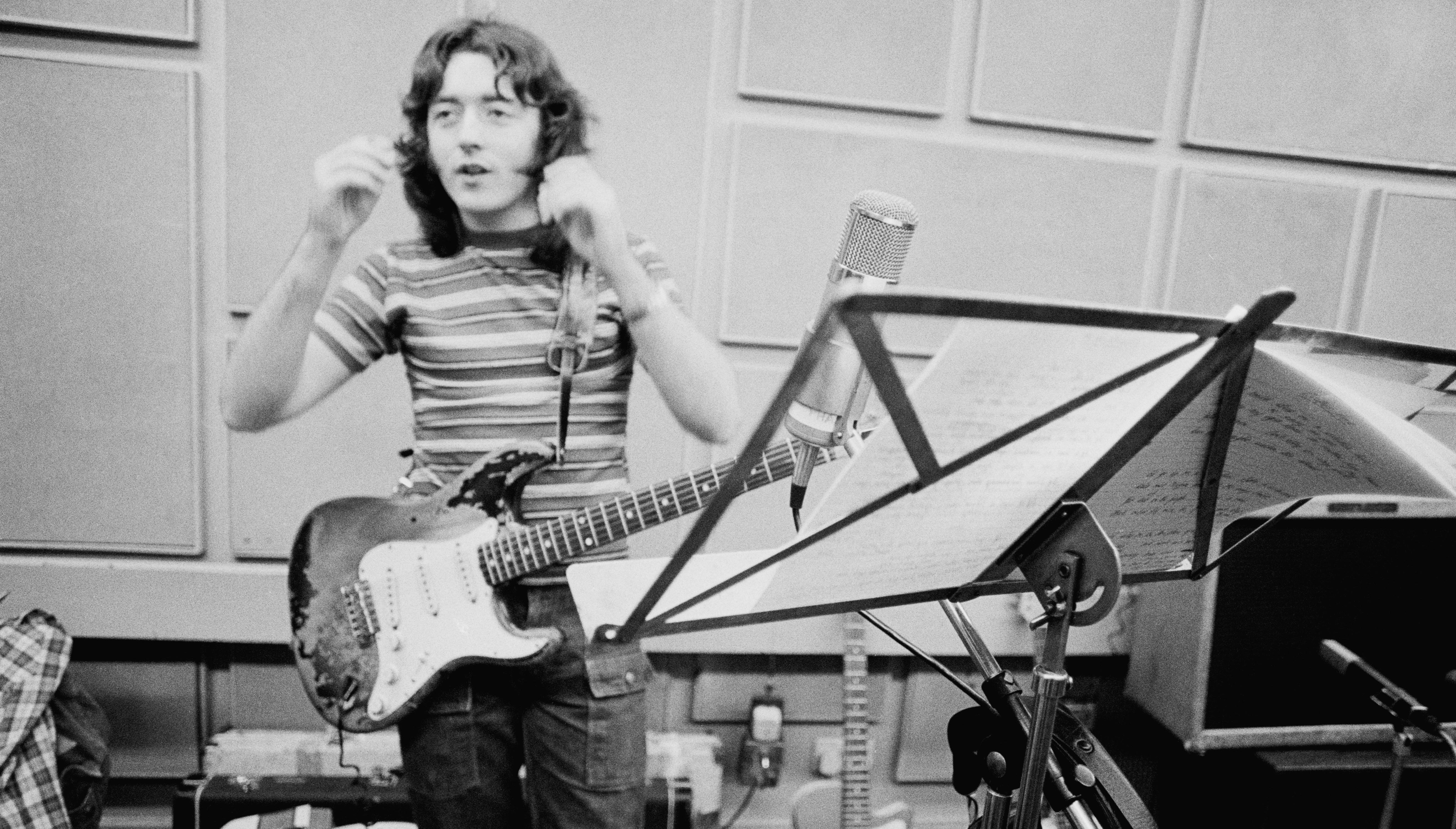
There have been some really great Irish guitarists over the years…
“Well, he’d be the first to tell you wouldn’t he [laughs] – yeah a great line of guitarists… Henry McCullough, Gary Moore, Eric Bell. Eric has a little unusual touch to his style as well, I think. I’m probably forgetting a few players now, which would be sinful, anyway there are some fine players.
“But also, as a child, I heard Django Reinhardt. I think maybe what we had in common is that he didn’t work a strict time on the guitar; he was just a little bit independent in his rhythmic approach.
"He danced around the rhythm or the beat, whereas a lot of blues players tend to work rigidly on the on-beat, whereas a jazz player or maybe a folk player would just pick their own time. That’s the secret I think, myself.”
I don’t notice any overt Irish music in your playing, but I suppose it must have an influence…
“I think it would come out a lot more in chords and odd little phrases. I haven’t delved into it. I mean, I can play Irish music, per se, but primarily it’s blues and rock. But, you see, when you write most of your own material anything’s possible – that’s the difference.
"Compared to, say, Fleetwood Mac – the Mac were doing, like, 90 per cent of other people’s material, while we were doing 90 per cent or our own material, with a couple of standards.”
Do you find it easy to write music?
“Fairly easy – I have rough passages here and there where, like every writer you get a block. If somebody came to the door and said, ‘Look I need a song by eight o’clock in the morning’ I could deliver one, certainly, but I try to wait till it’s semi-inspired, at least. I’m always jotting down bits in notebooks and on envelopes and always remembering little melodies and putting chords on cassettes, it’s an ongoing thing.
"But the actual business of getting it down and saying, ‘Well, I’m going to go for these two today’ – I mean it’s not that hard then. But the trouble is that once I’ve decided on the musical part, that stays stuck, but up to the day the record is delivered, on some songs I’m never satisfied with the lyrical part. I might keep honing it down and changing it but I think every writer does that, you know.
"But then some songs are pure gift, pure luck – it’s almost like somebody’s pushing the pen for you; you can feel it’s all there – lock, stock and barrel.”
When we chatted earlier, you mentioned retaining a bit of the outlaw in you…
“I just meant that the whole rock establishment now has blended so much with the so called ‘social high life’ and I think that it’s gone too far. I mean, I don’t think that’s what Eddie Cochran had in mind.
"I think rock should always stay a little bit outside the pale; I think it should remain a little bit dangerous – a little bit ornery, as the Americans say. Like when you hear punk songs being used as ice cream ads and nobody blinks an eye! You begin to wonder who really is holding the fort, you know.
That’s the old question; would you rather be on the front of Time magazine, or do you want to do what you’re doing and believe in it - for your life
"You need a little bit of distance, otherwise you could end up playing in salons again, like they used to. I don’t like that kind of patronage but it’s just the way you grow up, I suppose. I always thought rock and rollers and bluesers were made extra good, because they weren’t part and parcel of the social rank and file.”
Would you ever have liked to become a sort of ‘household name’?
“Well my ego would have to admit that I would, but I wouldn’t want to have to bend the knee too much for that. I’d like to be more well-known for what I do - or what my playing does. But I wouldn’t want to be a household name just because I wear orange shoes or I got kicked out of Tramp [the central London private members club] last night or some other daft thing.
That’s the old question; would you rather be on the front of Time magazine, or do you want to do what you’re doing and believe in it - for your life. But I don’t deserve a medal for that – that’s just the way it is…”
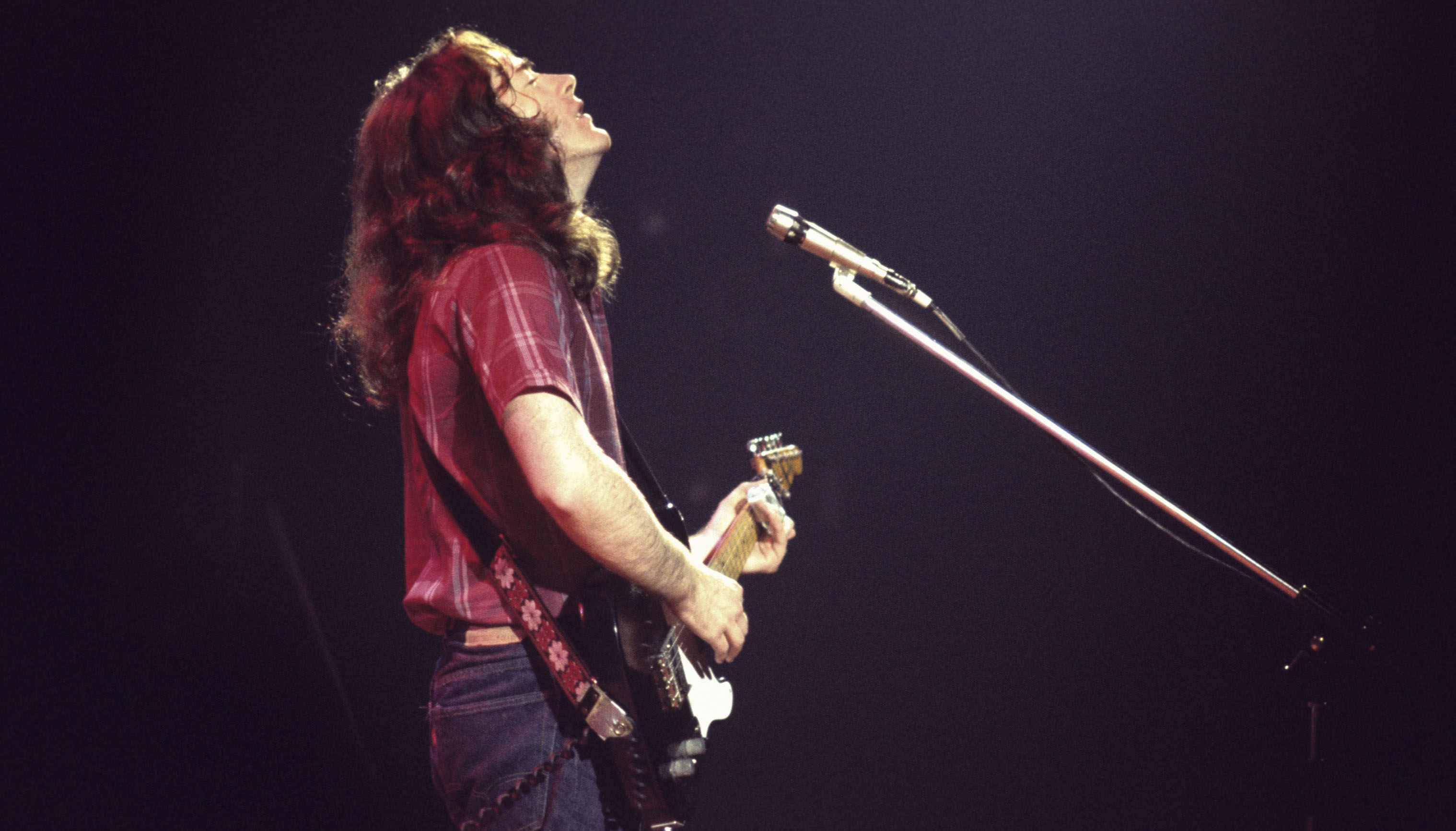
The European festivals seem to be a great stomping ground; they seem to still love the music for what it is.
“You see, on the continent they aren’t hooked up, as they are in London, about ‘this years model’. I’d retire tomorrow if I thought they just wanted to see you because they remembered you were around, this year or that year. I mean, all the albums have held their ground and I think, in parts of the continent, they see a kind of rock and roll lineage and they don’t even mess with certain pop things.
"Either you can cut it on a street level with them or you can’t – and they soon let you know! Hopefully, we’ve been able to do that. Anyway, with Taste, we scoured it all over - we played The Star Club in Hamburg and we played The Big Apple in Hamburg.
"Hamburg at that stage was almost the Mecca of rock and roll in Europe. In fact, when Jerry Lee and Fats Domino couldn’t get work in England they’d go straight over to the Star Club – and Gene Vincent and so on. That makes me sound very old – but, so be it.”
They still want the music, not nostalgia.
“Yeah, it’s no big knock against London but I think it applies in other British cities; once you get out of London the media thing isn’t so much of a big deal and, on the continent, I think a lot of people are suspicious of things that are too ‘yoghurt’.
"They know their blues and rock ’n’ roll, one would like to think, anyway. We mustn’t get too big headed about it. There again, there are some good people in this town who have come to see us. I’m not annoyed with people, I’m just annoyed at certain acts, I always have been cribby about that – people with credibility who sell out at the turn of a coin, it’s awful.”
You’re a bit of a Telecaster man; I think they’re your favourites aren’t they?
“I think they are. I mean, I’m a Strat player because of the three pickups, the out of phase thing, as well – even on my Stratocaster I’ve neutered the middle tone control. I think probably the ideal guitar would be like a Telecaster lead pickup on a Stratocaster body, but then that’s what Lowell George used to do.
“I turned against the rhythm pickup on Teles, years ago, and I put two Strat pickups in the middle and rhythm position, but then lately I’ve reverted back to the way they were.
That little metal pickup, as I call it, if you get a good one it’s got a strange little character all to itself. Okay, it’s not going to shake the Albert Hall but it’s a very warm and unusual little sound. It’s the flat pole pieces for a start and, I wouldn’t swear to it, but I think it’s thinner wire than the lead pickup. The only trouble with Teles is the old squealing problem, but we’ve all learnt to cure it, one way or the other.”
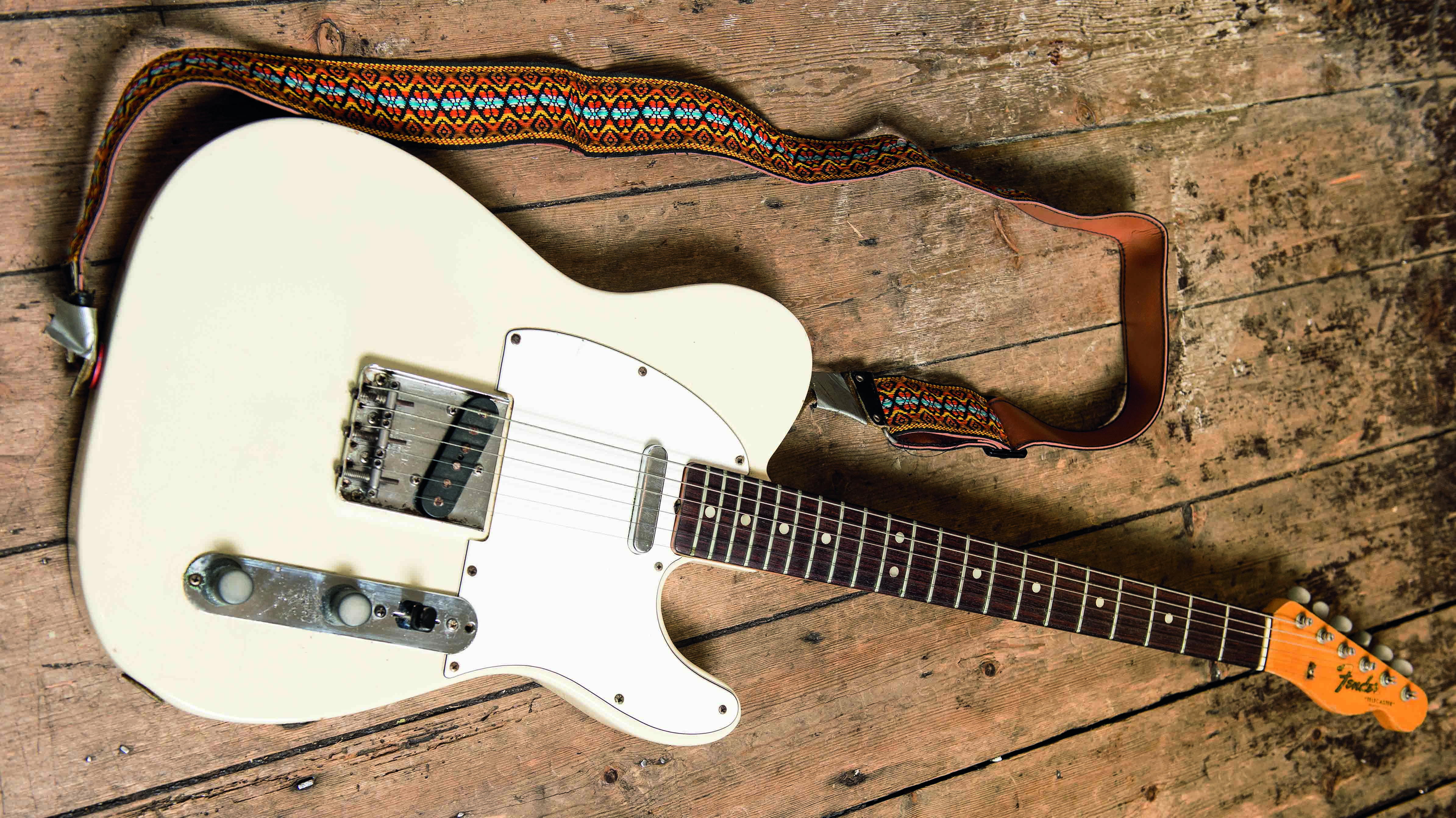
What’s your remedy?
“The rhythm pickup, you just dip in petroleum wax and put it in the fridge and that one’s cured, or at the very worst a bit of bicycle tape. The lead one is always the difficult one. What I do with that one, or should I say what Chris Eccleshall [renowned guitar maker and repairer] does with that one, is just take the brass plate from underneath the pickup and throw it away.
"He re-earths it somewhere else and that cures it. Plus, you have to put the petroleum wax in. Country purists would say that you lose a bit of zing doing that; I don’t know, that’s debatable. But then, in the old days, there were certain Teles that you didn’t even have to touch because they came out waxed and everything.
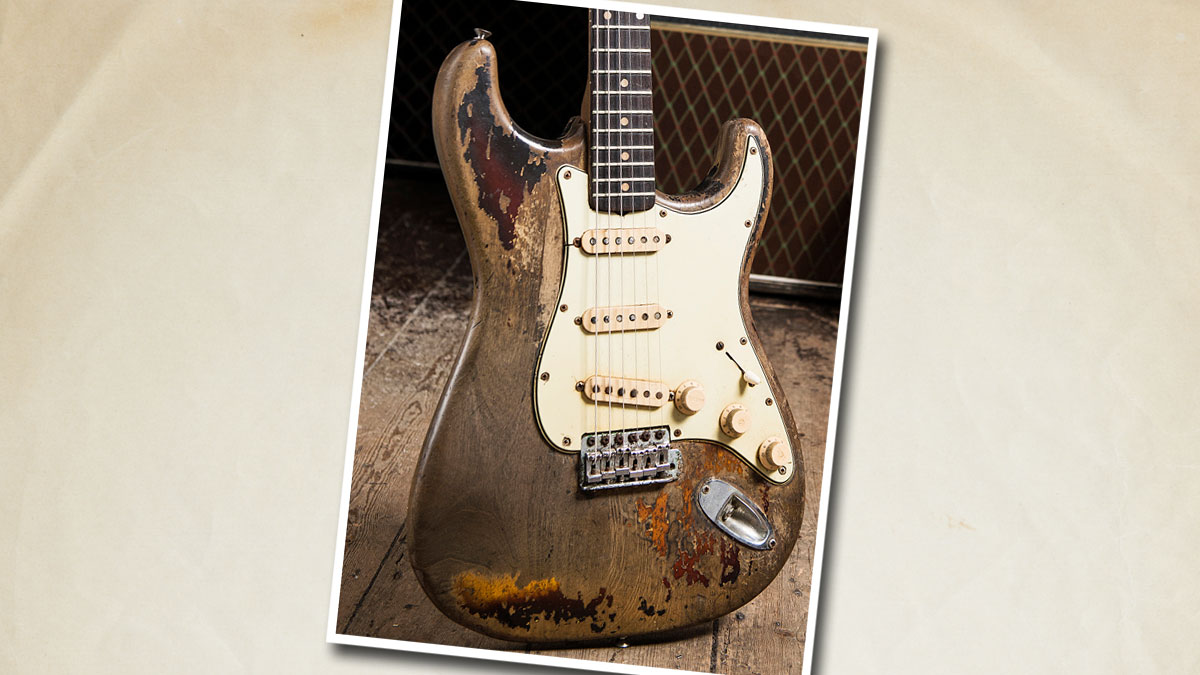
Fender brought the re-issue Tele out lately, which looked good but the pickups still squealed – and I thought they could at least get that right. It was a fine guitar otherwise; some of those reissues are not bad at all. And the anniversary Strat, which I was privileged to receive, is a very good guitar.
"On Teles and Esquires the lead pickups change a lot – the rhythm pickup rarely changes, but I find on the rosewood necks the rhythm pickup sounds better than on the maple necks… I don’t know...”
I think you’re right; I think the construction of the neck adds a lot of difference to the sound.
“I think it’s like heavy guitars; weight-wise they’re going old fashioned again. There are slightly lighter guitars coming in. Rosewood necks are back in fashion instead of ebony, bevelled necks are coming back in.
"One of the Teles I have, the black one, which is actually an Esquire, is one of the rare ones where the strings don’t go through the body, they come into the plate. I was going to change that and then I read Dan Armstrong, Kent Armstrong’s father, said that it gives an extra bite or something.”
There’s always one that defies all the rules; it’s got everything wrong but it’s a great guitar.
“I saw a Tele in the studio a couple of years back now, it was a real standard one – it even had a sticker stuck on it. I just had it plugged into a Champ amp, and that was the guitar they used for, like, taking to the canteen to write a song on, but it was outrageous – the full Steve Cropper sound. And it was an early 70’s model – so there’s no telling.”
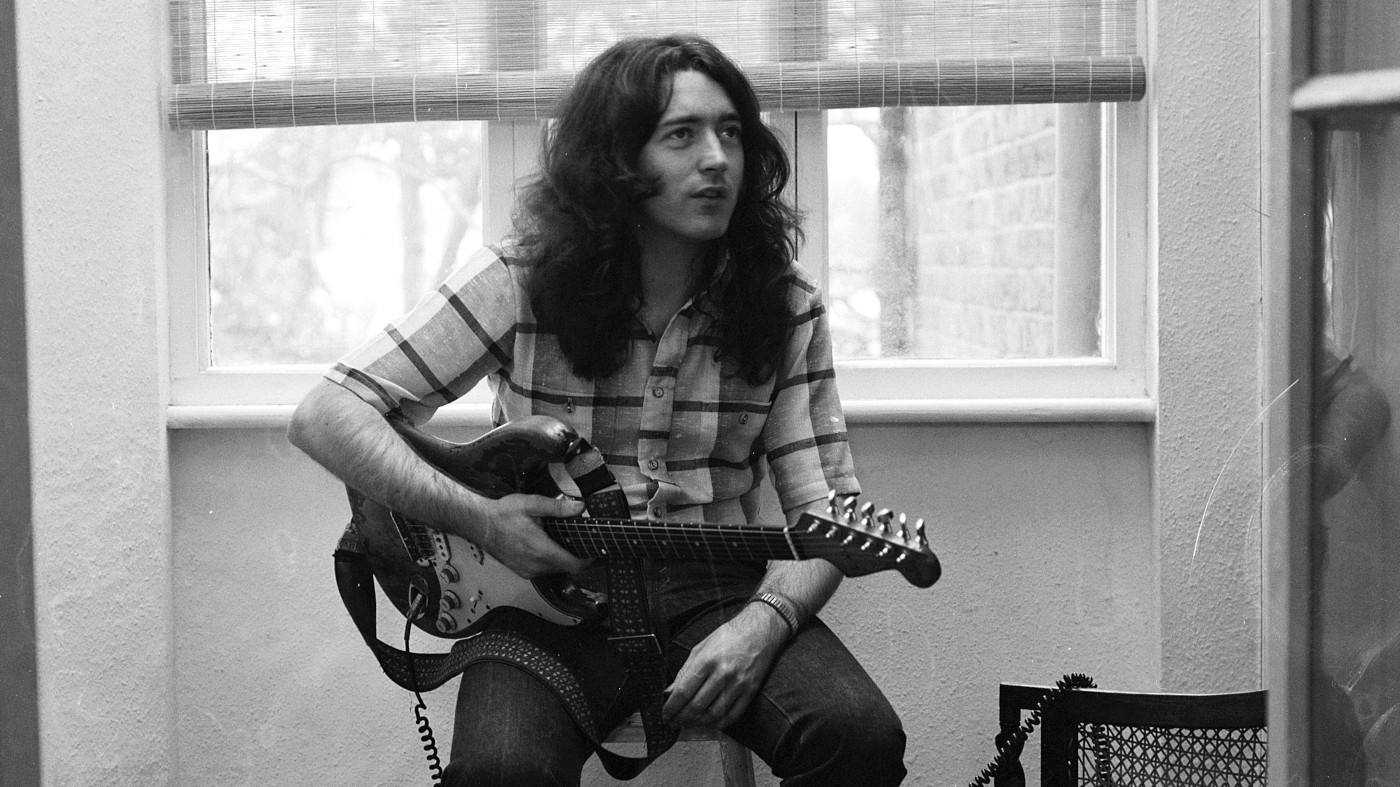
Donal Gallagher: “Playing with Muddy Waters was Rory’s badge of honour”
Is your old Strat still your main guitar?
“Yes, but I don’t stick with it all through the set, like I used to. I’ve got an old ’57, which is in good shape, but for some reason that ’61 is great. It has less ‘twang’ than a lot of Strats, but a lot of raw edge – it’s almost got about one per cent of SG about it.
“Of course, that’s another experiment I haven’t tried yet. Ry Cooder put a P-90 in the lead position of his Strat, but I don’t like having pickups of different values. And then Johnny Winter used one in the rhythm position on a Tele, as did Steve Cropper, and that’s not a bad idea, but you then have the problem about which value pot to use and so on.
"It’s like the BC Rich guitar, which is a beautiful guitar, beautiful construction, but it’s got about a million tonal varieties but, on the day, it’s like how many cricket bats can you use?”
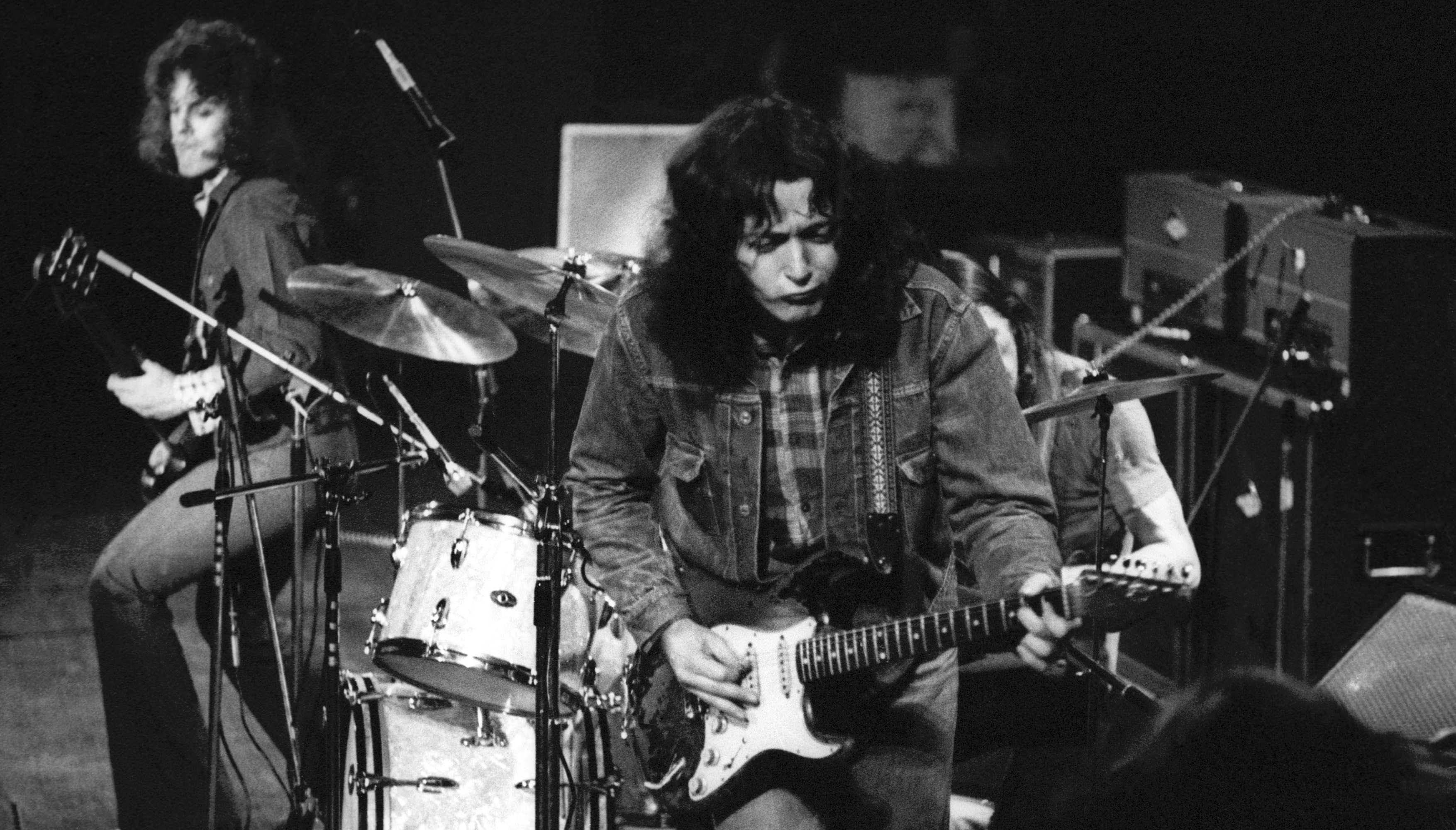
“A Les Paul Junior’s a nice guitar; you get a good, tough Junior that’s a great sound. I’ve heard some great sounds on those. Or you get a nice Danelectro or a Supro. Those guitars you just have to leave well alone because you can renovate them too much and you blow it.
"You can pick up the bodies in the States but they’re wrecked, they spray them with graffiti paint and all that. Even though you know that they’re not perfectly accurate and all that, if you get a good Danelectro with the right tone pot – that’s the big clue there – and if you take the tone down and turn the volume up you get that Hound Dog Taylor tone – really obnoxious dirt. But, because the pickups are wired concentrically they’re still clear, you know.
A lot of guitar players don’t use the tone control and they don’t even have them on guitars now, because of Eddie Van Halen
I can’t even solder two wires together – well, I can – but I wish I knew more about the possibilities of capacitors and things. James Burton I believe has done a few capacitor changes in his Teles; you can change the general smoothness of the thing – there’s a lot of leeway in there.
“Of course, a lot of guitar players don’t use the tone control and they don’t even have them on guitars now, because of Eddie Van Halen. Okay, that’s cutting the circuitry down a bit, I understand the plus for that, but I always use the tone control because there are a lot of different ‘spongy’ tones you can get half way down on a Tele or a Junior. Particularly if you play slide as well, you don’t want it to be clanging all the time, you want to take the rough edge off the top.”
So what are your plans from here on in? What are your touring plans?
“Well obviously with the album out we’ll be doing all these continental festivals and hopefully doing a British tour and an Irish tour soon. Then we’ll be looking at Japan and Australia and then a States trip, because we haven’t been there for two or three years.
"Hopefully we will follow the album up fairly fast, without being crude about it, because there’s a lot of good material left over and there are new things coming along.
“Also, hopefully, along the way I’d like to do some film music, if somebody’s interested. Knopfler’s done a lot of bits and pieces; it doesn’t have to be a guitar project but it would have to be a picture I liked, in style. But then again, if I get time, the longest project I’ve had on the shelf is an acoustic album, so that’s a possibility; there’s plenty to keep me going, anyway.”
And a single from this album? We haven’t even said what the album is called!
“Well, the album will either be Torch or Loan Shark Blues, which is one of the tracks on the album. I don’t know about a single; we’ve avoided it, but I mean we might ruffle a few feathers and bring a couple of tracks out in some form of mini EP or something - see what happens.
"The DJs now are so lazy that they wouldn’t get up off their backsides and dig out your record but it’s not their fault. We’ll try for some radio play and if it means bringing a record out in some sort of single form we’ll have to do it – but it won’t be Three Blind Mice it will be something strong.”
What would you think about being in the single charts?
“I could bear being in the charts and being on everyone’s car radio 10 times a day. I’m just terrified of… a lot of people I respect have done it with a real little ‘ditty’ and that was the end of it – that was all they were ever known for.
"But if we could break through with something dangerous, I could live with that. I mean, you could be too rigid about things and too silly with your theories and your ethos, cutting off your own nose, but it’s certainly better than disowning yourself in a year’s time because you did some silly thing that you regret.”
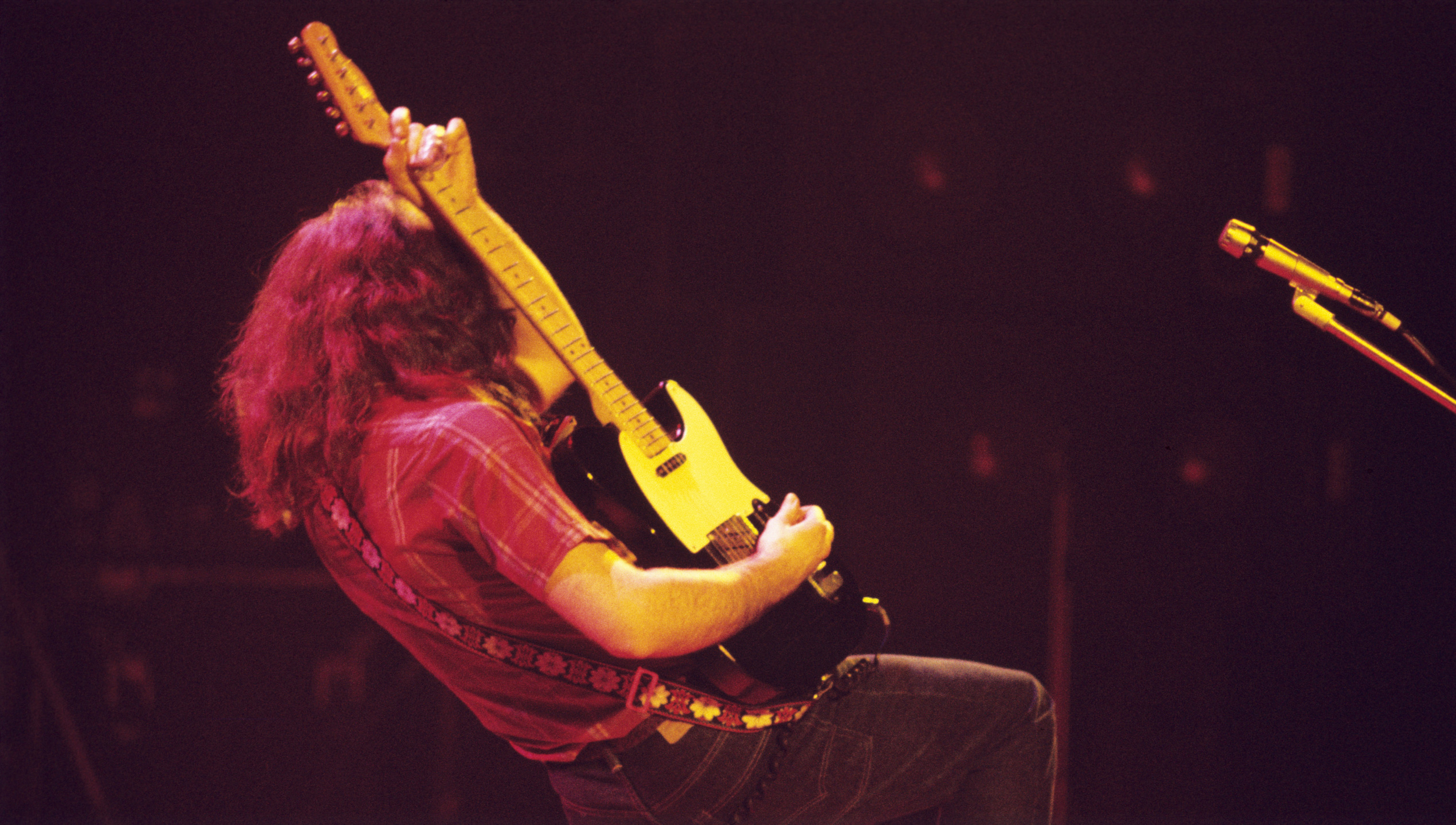
Remembering Rory
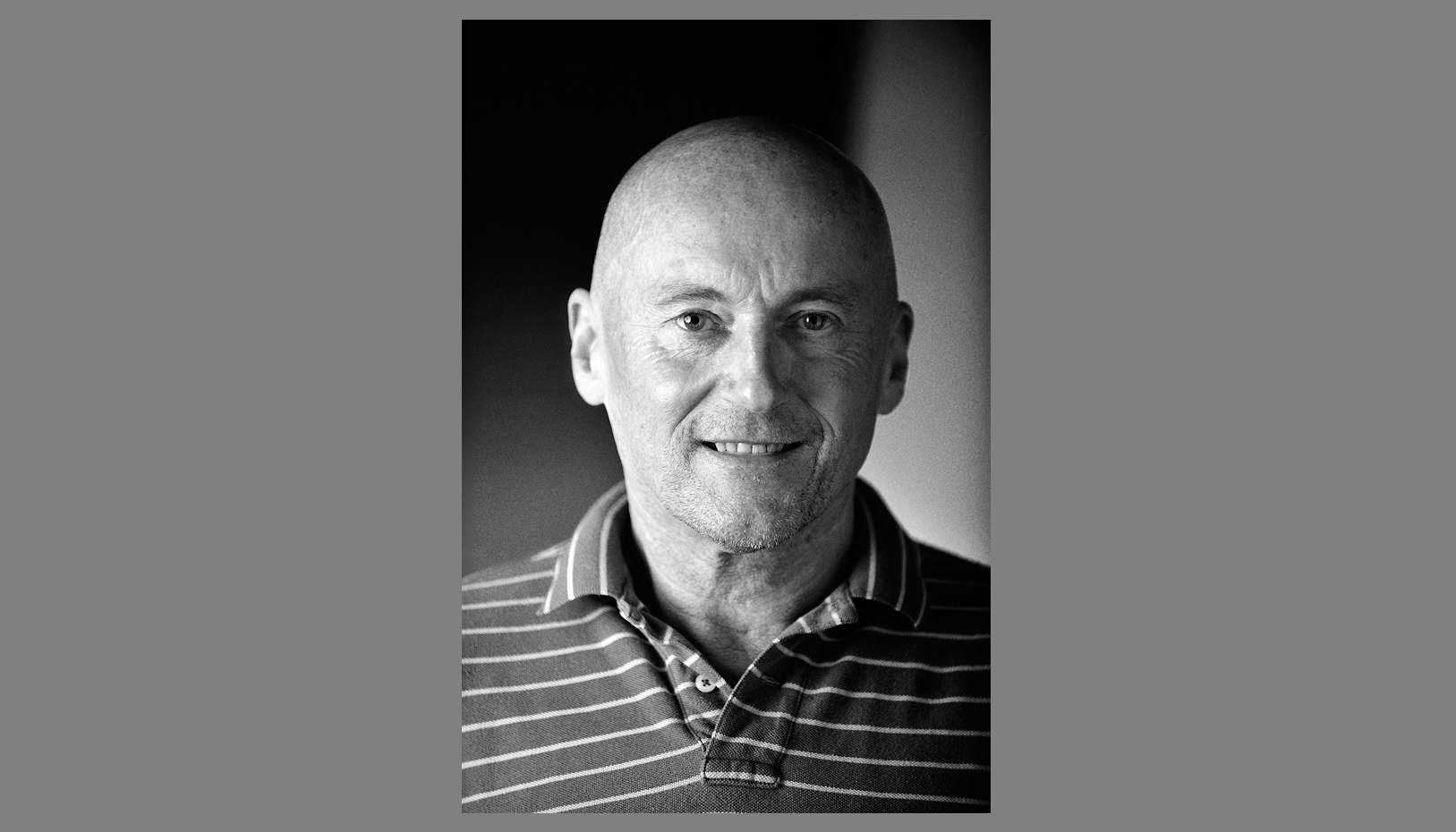
Neville Marten is a touring musician and former Editor of Guitarist magazine. He still contributes to the magazine as well as editing its sister title Guitar Techniques and is currently touring with Marty Wilde as a longtime member of his band, The Wildcats. Here he looks back on his interview with Rory with fond memories
"I remember this interview like it was yesterday. It was a blistering hot summer day and I drove to London to meet Rory at his local, around the corner from the Gallagher office in Chelsea. Rory had booked lunch for us and we simply chatted, ate and drank like we’d known each other for years.
"Rory’s warmth and generosity were legendary, and I was lucky enough to confirm this at first hand. We just got on, more like mates with a love of similar things than a fledgeling music journalist sent to interview a legend.
"The interview was carried out back at the office; Rory being as open and candid about music, success, his gear and his hopes as any journo could desire. I don’t think I’ve ever been made to feel more welcome – and more equal – than Rory made me feel that day.
"We bumped into each other on several occasions after that, and it was always, “Hey, Neville, how are things?” It was always more “tell me what you’re up to” than, “check out what I’ve been doing.”
"I spoke to Brian May about Rory, too; he echoed my findings exactly, as he’d asked Rory for some advice when just starting out, and been shown the same warmth and humanity. A delightful man... and some blues guitarist, too!"
Guitarist is the longest established UK guitar magazine, offering gear reviews, artist interviews, techniques lessons and loads more, in print, on tablet and on smartphones
If you love guitars, you'll love Guitarist. Find us in print, on Newsstand for iPad, iPhone and other digital readers
"At first the tension was unbelievable. Johnny was really cold, Dee Dee was OK but Joey was a sweetheart": The story of the Ramones' recording of Baby I Love You
"Reggae is more freeform than the blues. But more important, reggae is for everyone": Bob Marley and the Wailers' Catch a Fire, track-by-track





